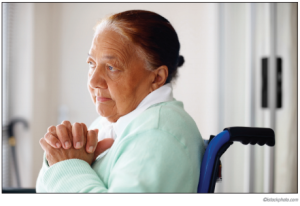Nursing home abuse and neglect are more common than most people think
 Elderly patients are being neglected and mistreated in nursing homes far more frequently than most people realize.
Elderly patients are being neglected and mistreated in nursing homes far more frequently than most people realize.
According to the National Center on Elder Abuse, about one out of every three nursing home residents in America suffers from neglect. In one survey conducted by the Center, nearly half of all participating residents claimed they personally had been abused in some way, and nearly all of them claimed they had seen another patient being abused.
The problem isn’t always that nursing home staff members are malicious – many obviously care a great deal about the patients. Often, the problem lies with the nursing home management. A large number of nursing homes are understaffed, and the staff they do have are sometimes poorly trained and don’t know how to properly care for the residents. Many nursing homes have high staff turnover, and as a result, patients get lost in the shuffle. And if management pays low wages and treats its staff poorly, the staff might not be motivated to treat patients the way they should.
These conditions can lead to situations where patients are neglected or mistreated, resulting in physical and psychological harm … and in a number of cases, even death.
One reason we don’t hear more about the problem is that many deaths related to nursing-home abuse are never identified or reported.
When a young person dies, it’s unusual and arouses suspicion. Deaths among older people are more expected. As a result, many people – even doctors – may simply assume that an elderly person’s “time has come,” and fail to fully investigate what happened.
Further, in many states, doctors are permitted to sign off on death certificates without viewing the body. As a result, a treating doctor might chalk up a nursing-home death as being due to natural causes, and record it as such on a death certificate, even though there might actually be grounds for skepticism. When this happens, there’s no autopsy that would reveal what really caused the person’s demise.
One recent survey found that post-mortem exams were performed on fewer than one percent of all senior citizens who died in nursing homes.
If you have a loved one in a nursing home, it’s a good idea to keep an eye out for any changes or problems, and for anything that makes you feel suspicious. This could include unusual bruises, cuts or marks on the person’s body; mood changes; withdrawal; bedsores; unexplained injuries or infections; rapid weight loss or gain; psychological changes or indications that the person feels scared or uncomfortable; the person’s appearing malnourished or dehydrated; or any sudden changes to medications, especially sedatives.
If the nursing home is uncooperative in response to your questions, that might be a sign that there’s something to investigate. It’s a good idea to consult with a lawyer to find out what rights you have.
Recently, a retired scientist named Joseph Shepter died after a two-year stay at a California nursing home. He had been paralyzed from a stroke and suffered from dementia. The cause of his death was listed as heart failure, and his family naturally assumed that was correct.
But a later investigation revealed that he had actually died from symptoms of poor care, including an infected ulcer, pneumonia, dehydration and sepsis. He had also been given powerful antipsychotic drugs, which can have deadly side effects.
The nursing home was fined $150,000, and a criminal investigation was begun.
In cases similar to this one, families might also be able to sue the nursing home and recover monetary compensation for the harm to a loved one.
